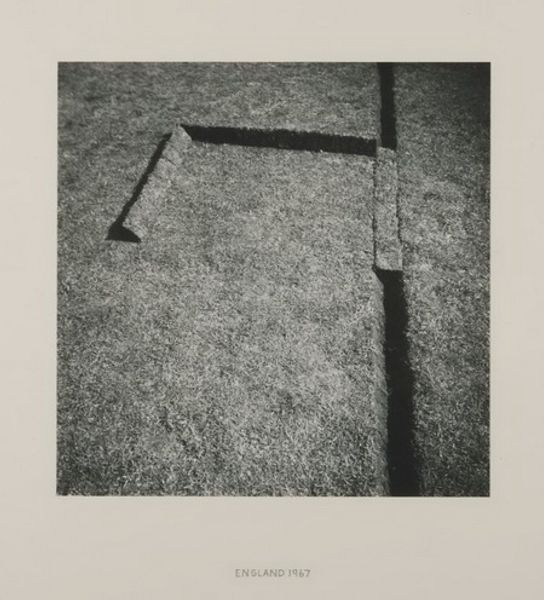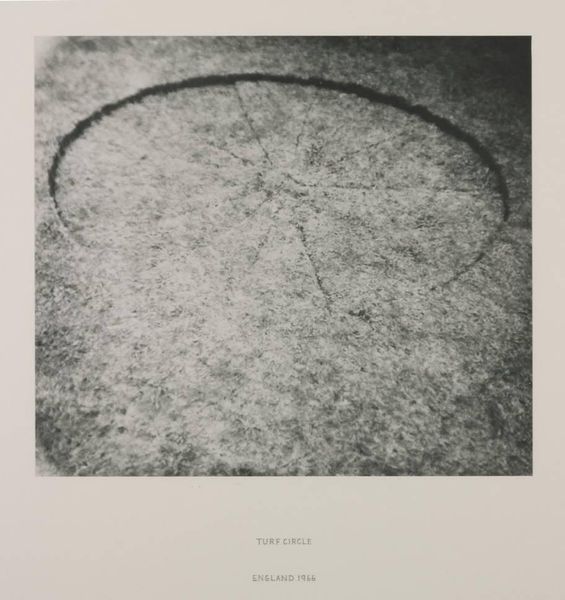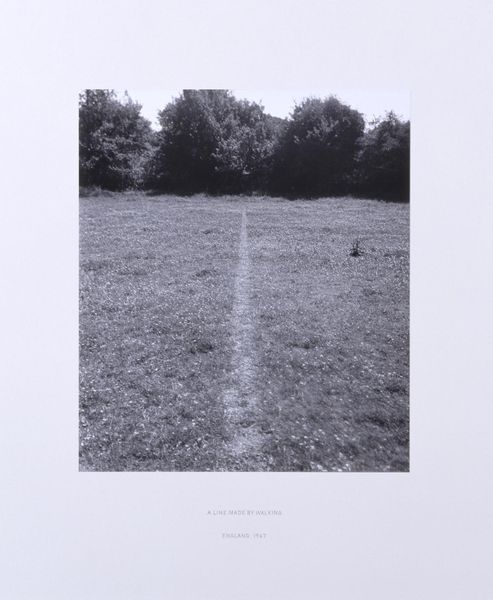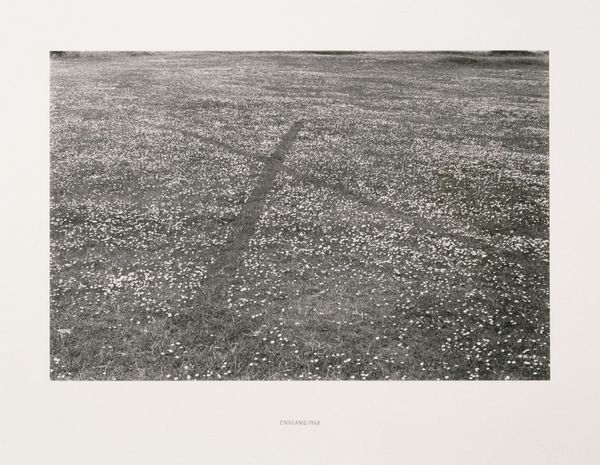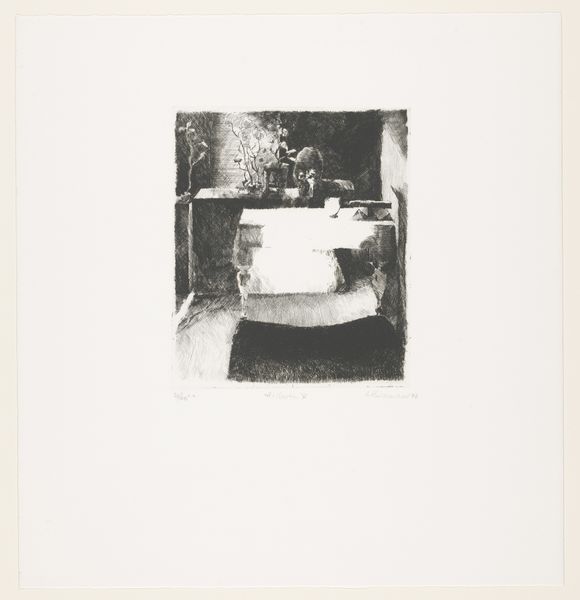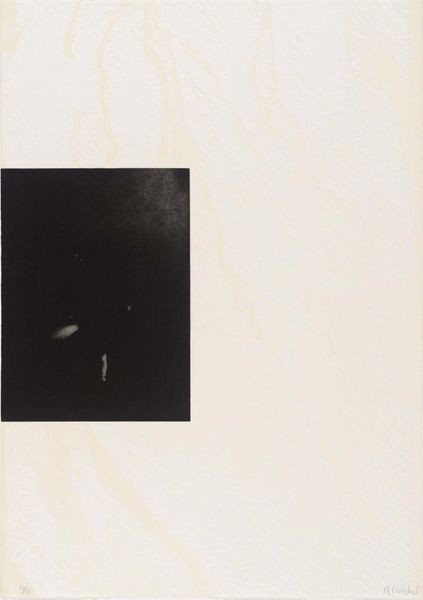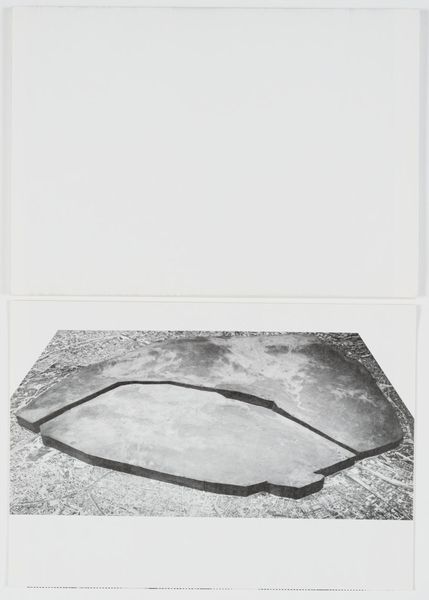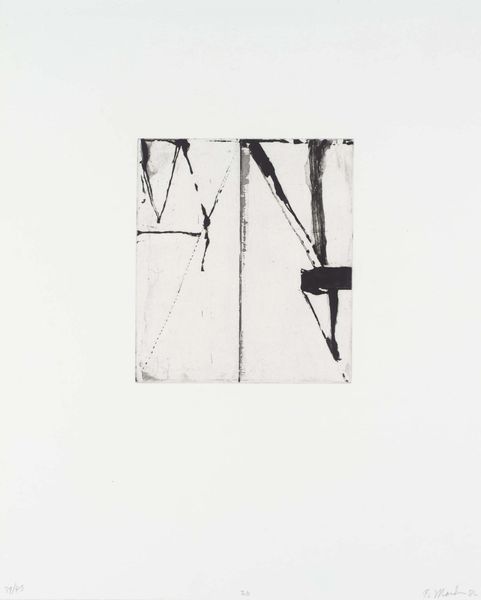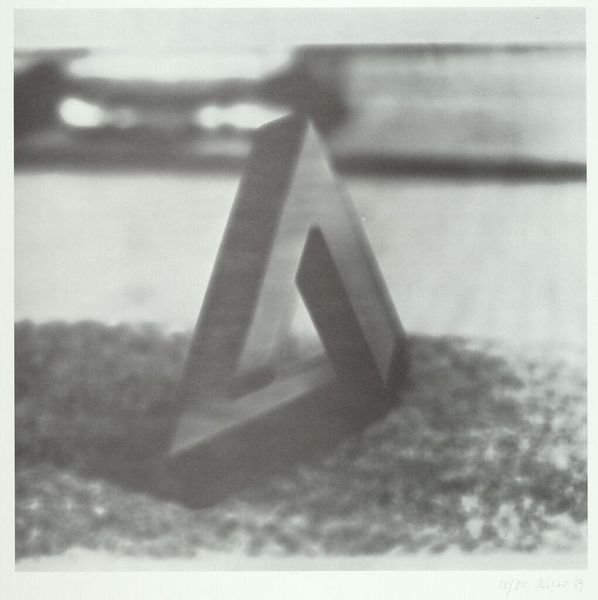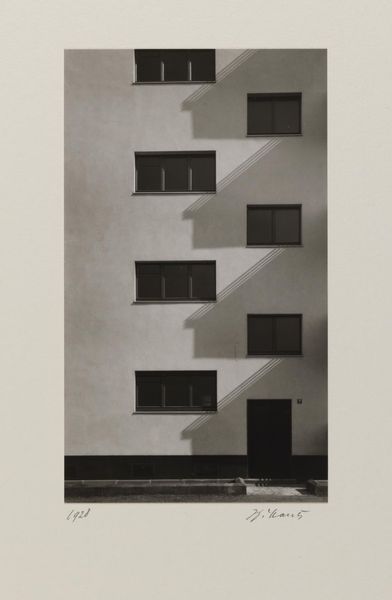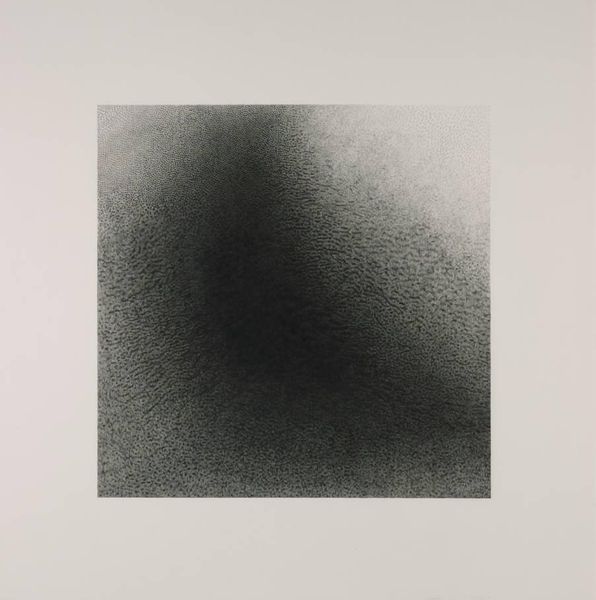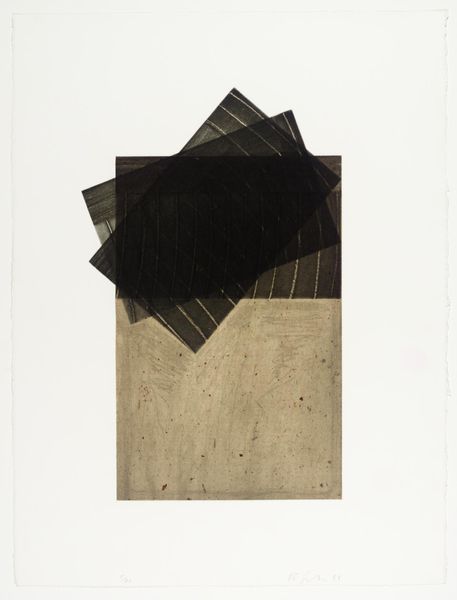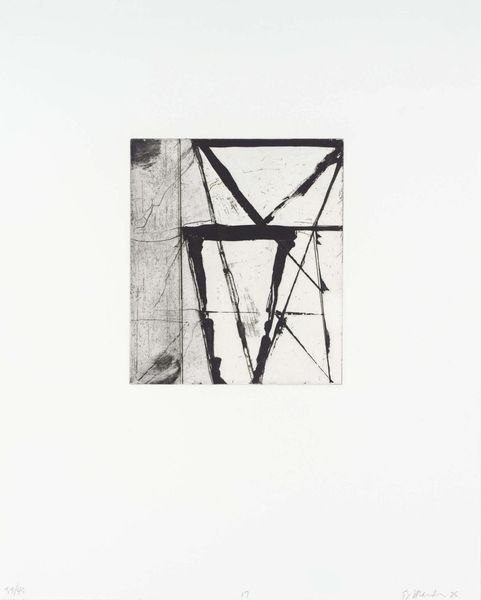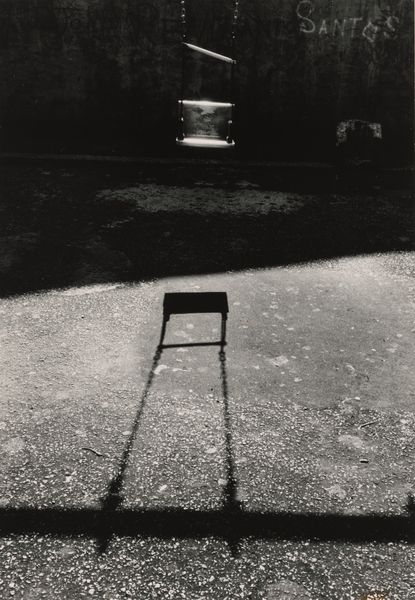
Dimensions: image: 229 x 229 mm
Copyright: © Richard Long | CC-BY-NC-ND 4.0 DEED, Photo: Tate
Editor: This is Richard Long’s "Turf Sculpture," a black and white photograph of a manipulated grass field, taken in 1967. It feels so simple, almost like a child's drawing in the landscape. What's your interpretation of this piece? Curator: Long is intervening in the landscape, but very gently. Consider the late 60s, a period of social upheaval and a growing environmental consciousness. How does this action, documented as art, reflect or comment on those times? Is he critiquing our relationship with nature, or celebrating a new kind of interaction? Editor: It's interesting to think about it in that context. I initially saw it as just a formal exercise, but there's definitely a deeper commentary there. Curator: Exactly! The photograph itself also becomes crucial. It's not just the sculpture, but how it's presented and framed that gives it meaning and puts it in the public sphere.
Comments
Join the conversation
Join millions of artists and users on Artera today and experience the ultimate creative platform.
tate 10 months ago
⋮
Long finished this work in Bristol in his second year on the Advanced Course. He cut the soil, removing the turf segments and configured its formal arrangement before making a photographic record. The cut turf was then relayed so that the segments would grow back into the earth.Critics have noted a connection between Long’s arrangement of the turf and the basic geometric shapes that characterised the formalist work of tutors such as Anthony Caro. Long has refuted this view by explaining the significance of the archetypal natural forms and the ephemerality of this intervention. Gallery label, May 2007
